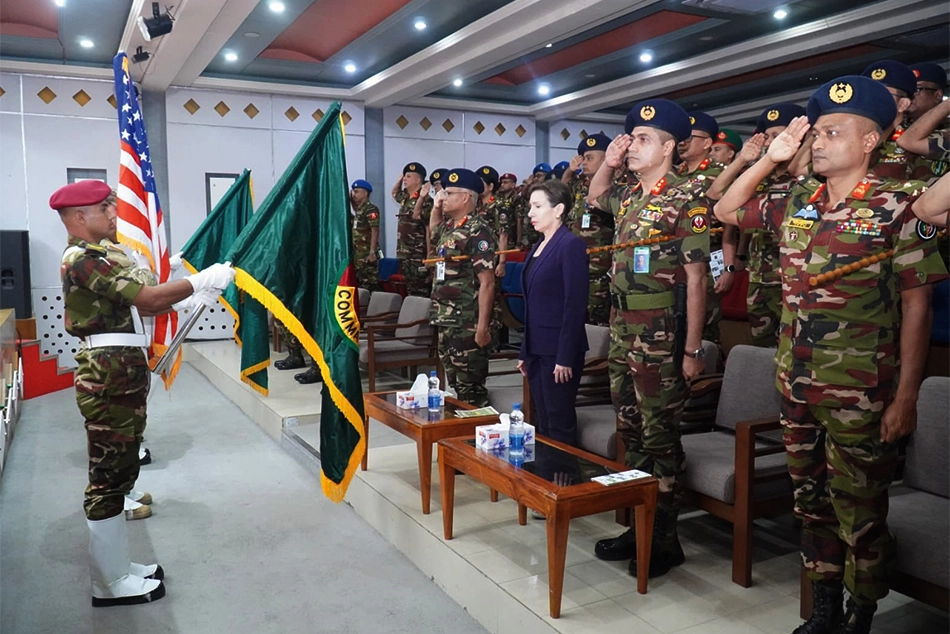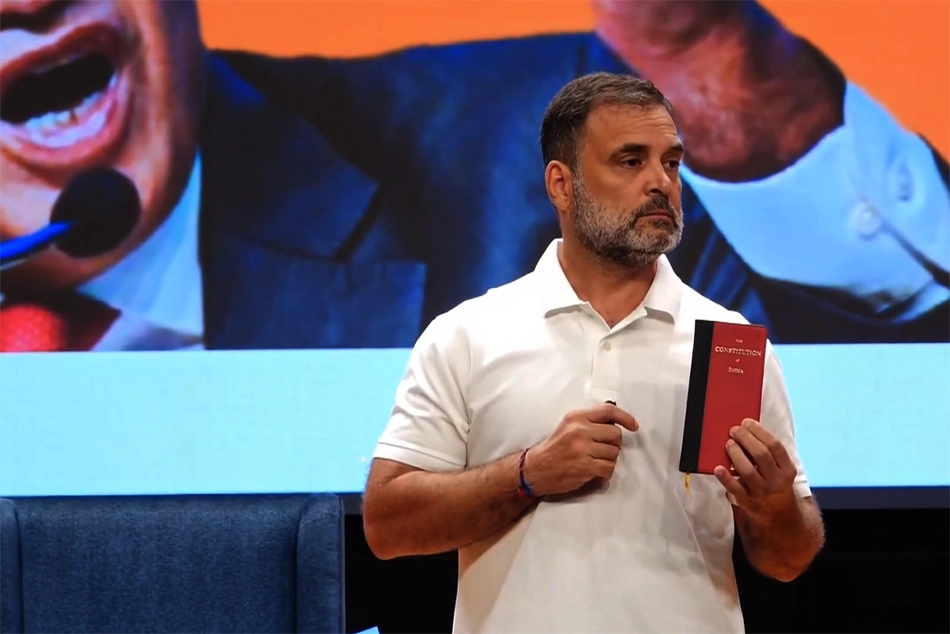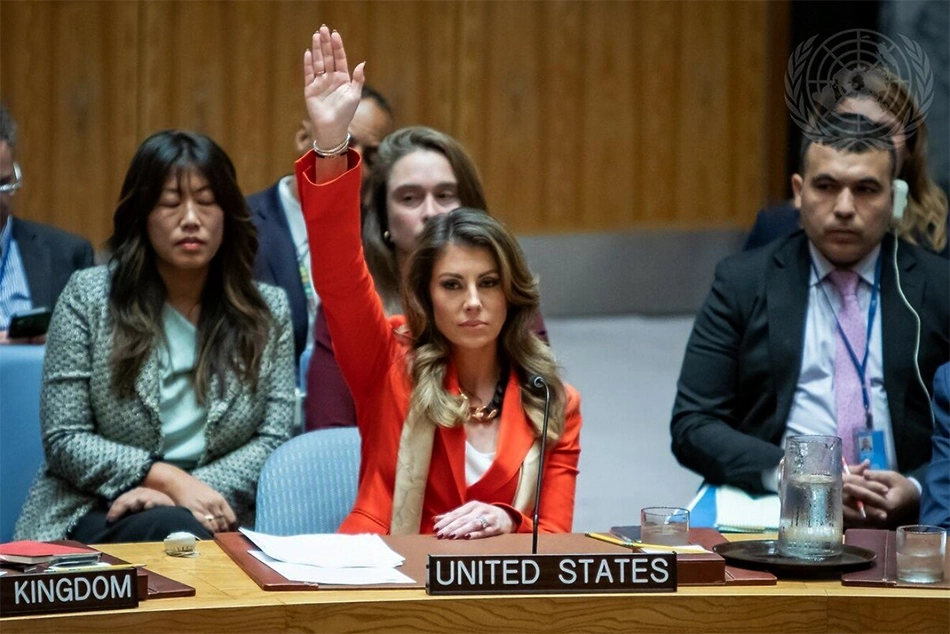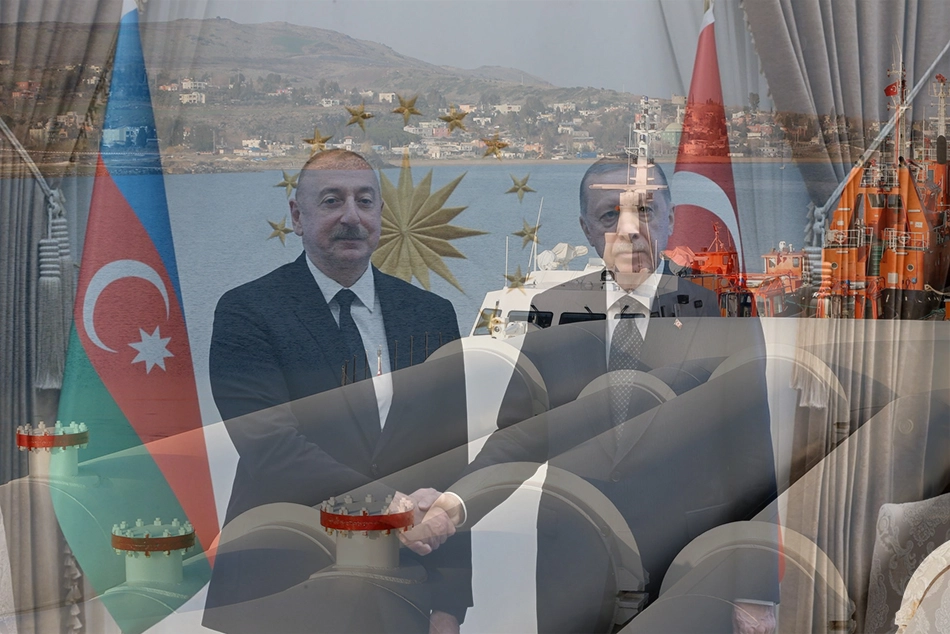
India's Concerns over US Military Presence in Bangladesh
The US military arrived in Bangladesh for three joint military exercises with its counterpart, the Bangladesh Army

In 1996, Bangladesh agreed to the “war on terror” against the “rogue regime in Afghanistan”, officially the “Global War on Terrorism”, a global military campaign initiated by the United States following the 11 September attacks in 2001, and is one of the most recent global conflicts spanning multiple wars.
The US military arrived for three joint military exercises with its counterpart, the Bangladesh military. The US officers checked into a Bangladesh Army-affiliated Radisson Blu Hotel in Chattogram (formerly Chittagong) on September 10 for an exercise in the coastal region of the south.
For the fourth year in a row, the Bangladesh Army and US Army Pacific conducted Exercise Tiger Lightning for preparedness on counterterrorism, peacekeeping, jungle operations, medical evacuations, and countering improvised explosive devices (IEDs), says the US Embassy in Dhaka on 20 July.
Since 2009, the ongoing exercise will feature patrol boat handling and small arms marksmanship, strengthening warfare diving and salvage, as well as the para-commandos’ ability to respond to crises.
In the hallmarks of defense relationship between the two countries, the US built C-130 fleets that are critical in disaster response, airdrops, and air mobility operations. The exercise included Search and Rescue (SAR) and Aero-medical operations, further developing Bangladesh’s ability to respond to humanitarian disasters.
The United States, with Bangladesh’s Army and Navy, develop an Unmanned Aerial System (UAS) capability for Bangladesh, and operated the new RQ-21 Blackjack system. The effort enabled Bangladesh to monitor its maritime domain, secure its borders, and conduct peacekeeping missions.
Whereas, hundreds of social media accounts loyal to the ousted regime of Sheikh Hasina burst into outrage, deep into conspiracy theories that the Nobel laureate Prof Muhammad Yunus Interim Government has opened the floodgate for “clandestine operation” to enable Bangladesh military forces to militarily strengthen the Myanmar rebels to oust the military junta in the capital Naypyidaw. The social media was abuzz that the US military officers had “secretly” arrived in Bangladesh and did not register their names at the hotel.
The second conspiracy theory, which was widely floating in social media and many suggest that the US military presence was to determine a suitable base which would make their presence felt in South Asia and also monitor South-East Asia.
Well, the Bangladesh authority did not bother to counter the conspiracy theories that attempted to undermine the joint military exercise.
In August 2016, former Prime Minister Sheikh Hasina, during a meeting with former Secretary of State John Kerry in Dhaka, expressed a “very clear” desire to cooperate with the U.S. “very, very closely” on fighting terrorism. Kerry announced the two countries had agreed to “additional steps by which our intelligence and law enforcement will work together to try to get ahead of this.”
Kerry said the US and the West are deeply worried after evidence of the presence of “Islamic State jihadists operating in Iraq and Syria” have sleeping cells in “eight entities around the world, and one of them is in South Asia.” He deliberately did not mention the name of Afghanistan.
He, however, disclosed that Islamic State extremists are in contact with some operatives in Bangladesh, and there was no argument about it from the government officials he met with here, including the prime minister.
Hasina’s government was blamed by scores of terrorism analysts and security experts for ‘having its head in the sand’ about such links, repeatedly terming the attacks as homegrown. Meanwhile, popular India Today media published a documentary titled: Strategic Drills In India’s Backyard: US Footprint In Bangladesh Rising.
Another media News Arena India on 15 September wrote in an article that India’s intelligence circle, the US troops’ arrival has fueled speculation amid a noticeable uptick in American military activity in Bangladesh following the fall of the Hasina regime.
The same article was widely quoted on social media that the US military officers refrained from registering their names with the front desk and slipped into pre-booked rooms.
“The purpose of the exercise remains vague, with officials mentioning Cox’s Bazar as a likely location. The Bangladesh Army has largely remained cagey about the presence of US forces, apart from acknowledging formal collaborations such as Operation Pacific Angel and Tiger Lightning-2025,” wrote News Arena India without mentioning the source of information. The presence of C-130Js has reinforced speculation about the scope of US military activities in Bangladesh, etcetra, etcetra.
In the mid-60s, the radical left students to imbibe dissent against the military dictator General Ayub Khan of Pakistan said that he had leased Saint Martin’s island in the southeast tip of the country to the United States to build a military base to counter India.
The conspiracy theory of St. Martin given away to the Americans has cropped up several times since its independence in 1971. They were deliberately blamed for different regimes for facilitating inroads for America to counter the regional influence of India and China.
Bangladesh’s only coral island, Saint Martin, the Department of Environment (DoE) in 1999 declared the 8 sq km isles an “Ecologically Critical Area (ECA)”. It warned that the geo-class of a tiny island cannot be changed without the permission of the DoE. A British team of surveyors in 1900 included Saint Martin’s island as part of the British Raj in India and named it after a Christian priest, Saint Martin.
Green activists and environmentalists say the island is home to several globally endangered marine turtles and birds, including the rare Pacific reef-egret, red crab, dolphin, and vulnerable olive Ridley sea turtles, which are also on the verge of disappearance.
Professor Kawser Ahmed, dean of the Earth and Environmental Sciences Faculty of Dhaka University, in his article published in Ocean Science Journal in 2020, predicts that coral species will completely disappear by 2045.
Earlier, Syeda Rizwana Hasan, environment adviser to the Interim Government, doubted whether an ecologically threatened island would be suitable for any military purpose. Political historian and researcher Mohiuddin Ahmad, quoted in the largest circulated Bangla newspaper, Prothom Alo that he first heard in February 1971 about leasing Bhola’s Monpura island out to the USA.
The rumor took wings after the then fiery opposition leader Sheikh Mujibur Rahman had parley with the US Ambassador to Pakistan, Joseph Simpson Farland, on 28 February 1971 – a month before the genocidal campaign ‘Operation Searchlight’ launched by the Pakistan military, which sparked the liberation war.
Indian media quoting Hasina from a press conference in July 2023, asked, “How did [opposition] BNP (Bangladesh Nationalist Party) come to power in 2001?”
She continued that they came to power by pledging to sell [natural] gas [to India]. Now do they want to sell the country [to the United States] or come to power by pledging to sell Saint Martin’s island,” she told loyalist journalists.
Her words spread like wildfire and were injected into the minds and hearts of millions of supporters that Americans have an interest in the ‘critically endangered’ tiny island.
She blames BNP for negotiating with Washington, DC, to give away the ‘critically endangered’ coral island to America for a military establishment to watch over a huge swatch of the Bay of Bengal, which merges with the Indian Ocean in the far south. BNP countered her statement and said, “No country signs a deal with the opposition; it is signed with the government.”
On the other hand, the United States State Department’s former spokesperson Matthew Miller scoffed at the rumor centering on the island and the USA. In a press briefing in Washington, DC, he confidently said, “We have never engaged in any conversations about taking over Saint Martin’s island,” he remarked.
Despite the denial by the US official, the loyalist of Hasina still blows the horn that the American military presence is interpreted as the establishment of a strategic naval base in the ocean of Bangladesh.
[The writer, Saleem Samad, is an Independent Journalist based in Bangladesh and a media rights defender with Reporters Without Borders. He is the recipient of the Ashoka Fellowship and the Hellman-Hammett Award. The above article is first published by the Stratheia Policy Journal, Islamabad, Pakistan, 24 September 2025.]
Follow ummid.com WhatsApp Channel for all the latest updates.
Select Language to Translate in Urdu, Hindi, Marathi or Arabic







